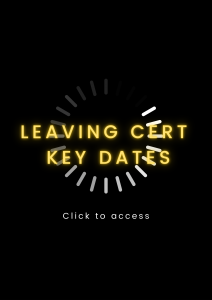
Q. I am doing my final exams in Engineering in college in May and I am faced with doom and gloom about my future. Can I do anything at this stage to help me onto the career ladder?
A. Now is an excellent time to start deciding on your future and to be pro-active.
Sli Nua Careers (tel 094 95 42965, www.SliNuaCareers.com) carry out CV Preparation, Mock Interviews, Interview Training, and Career Direction. For your free e-book on interview & CV tips, email GetThatJob@SliNuaCareers.com. They provide online CV makeovers at SliNuaCareers.com/cv-preparation/cv-makeover/.
Primarily, put together a professional, concise CV. At this stage of your career, it may be very sparse but collate your achievements, grades in college and any work placement (regardless of length of time). Include details such as your thesis titles and key skills that you have acquired.
Set up an informational interview with an employee in a company. An informational interview is an interview that allows you to gather required information about a particular industry. You can offer lunch and ‘interview’ them about what the job ‘really entails’.
Treat your job search like a college project. Document all steps that you complete and subsequent action taken. You will find that treating this like a project will build momentum, and activity generates more activity. Give yourself deadlines on following up and be hands-on.
Talk to recruitment agencies. Recruitment agencies are always sourcing ‘suitable, talented’ individuals and being professional and interested will stand to you. Treat agencies as you would an employer – people make a common mistake of not making a real effort when talking to agencies and waiting until the ‘real’ interview arrives.
Online social networking is becoming more and more prominent and often recruitment agencies and employers will look to sites such as LinkedIn for suitable candidates. Join discussion boards in your area also.
Finally, think about adding value to the company. Send an email : Dear Ms AN Other, I think I can bring value to your company – and if you give me ten minutes of your time, I will show you how.” (It is vital to be prepared if they do call you!)
Do not follow the traditional routes that are usually heavily congested with applicants. Sometimes, you will find a suitable opportunity lying vacant that is not advertised and therefore, competition is lower.
Q. What do I wear to an interview? I was told that wearing jeans is fine if that’s what the dress code is in the company. Also, this role will involve working in a warehouse so I don’t want to come across as too reserved
A. Communication and interaction techniques with individuals have become more relaxed in the current climate. We write to each other in ‘text language’ and traditional letter writing has been replaced by informal notes. However, when dressing for interview, always dress in smart attire.
Never assume that because the dress code is casual in the company that you are permitted to follow this. Don’t worry if you do not own a suit, just dress smartly for the role. Even if the role is not office-based, it speaks volumes about your preparation for the interview. Your dress represents you.
Avoid making a fashion statement or wearing loud colours– although it’s clichéd to wear sober grey/navy/black colours, you do not want to stand out in interview. You want your skills to stand out and not your dress!!
Ensure that you have an outfit picked out in advance. This is all part of interview preparation and planning even your outfit in advance all helps you to be a more relaxed, confident candidate.
An interview is an artificial setting where role play decides on your fate. Play the part and dress appropriately.






